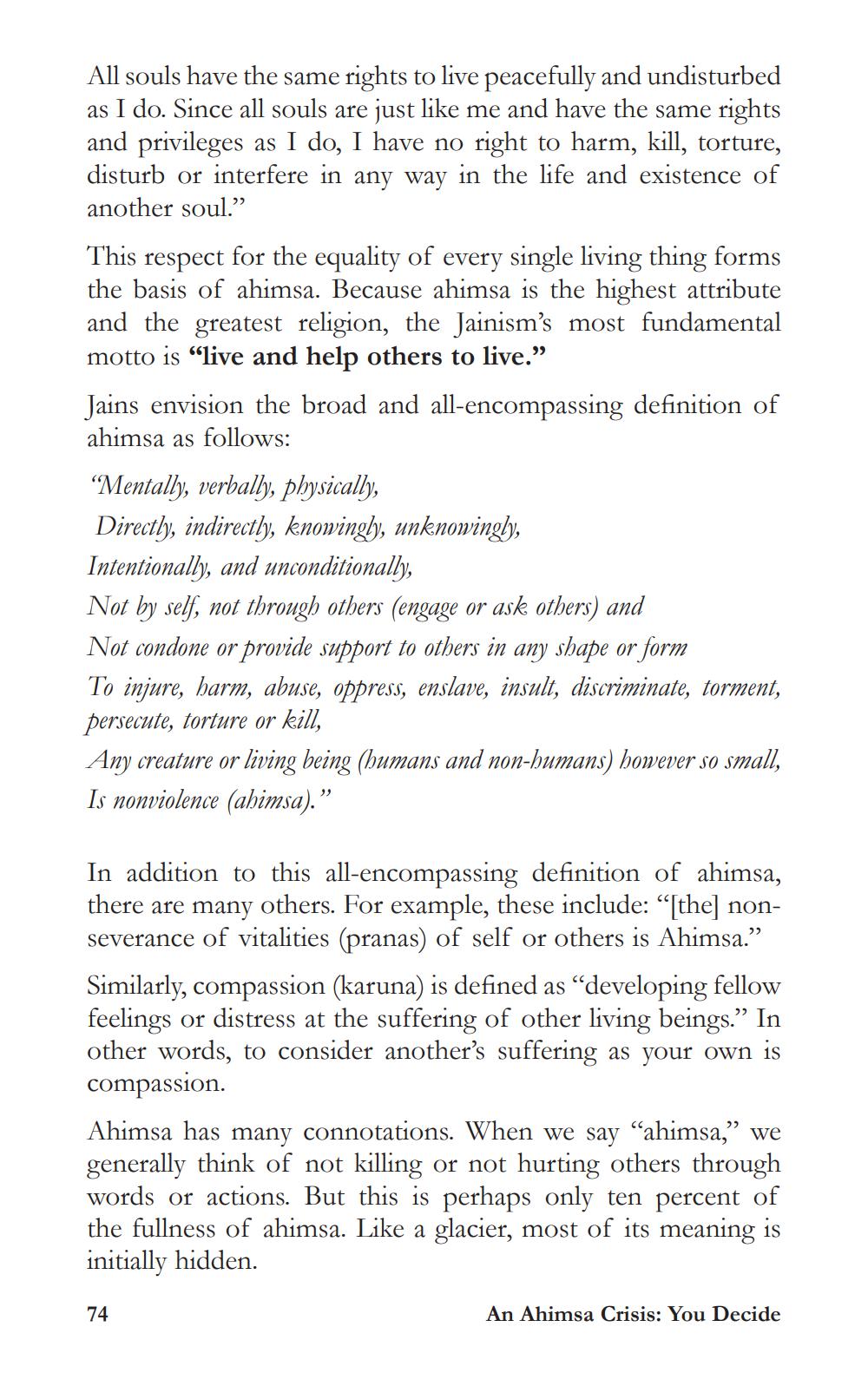________________
All souls have the same rights to live peacefully and undisturbed as I do. Since all souls are just like me and have the same rights and privileges as I do, I have no right to harm, kill, torture, disturb or interfere in any way in the life and existence of another soul.” This respect for the equality of every single living thing forms the basis of ahimsa. Because ahimsa is the highest attribute and the greatest religion, the Jainism's most fundamental motto is "live and help others to live.” Jains envision the broad and all-encompassing definition of ahimsa as follows: “Mentally, verbally, physically, Directly, indirectly, knowingly, unknowingly, Intentionally, and unconditionally, Not by self, not through others (engage or ask others) and Not condone or provide support to others in any shape or form To injure, harm, abuse, oppress, enslave, insult, discriminate, torment, persecute, torture or kill, Any creature or living being (humans and non-humans) however so small, Is nonviolence (ahimsa).”
In addition to this all-encompassing definition of ahimsa, there are many others. For example, these include: “[the] nonseverance of vitalities (pranas) of self or others is Ahimsa.” Similarly, compassion (karuna) is defined as “developing fellow feelings or distress at the suffering of other living beings.” In other words, to consider another's suffering as your own is compassion. Ahimsa has many connotations. When we say “ahimsa,” we generally think of not killing or not hurting others through words or actions. But this is perhaps only ten percent of the fullness of ahimsa. Like a glacier, most of its meaning is initially hidden.
74
An Ahimsa Crisis: You Decide




